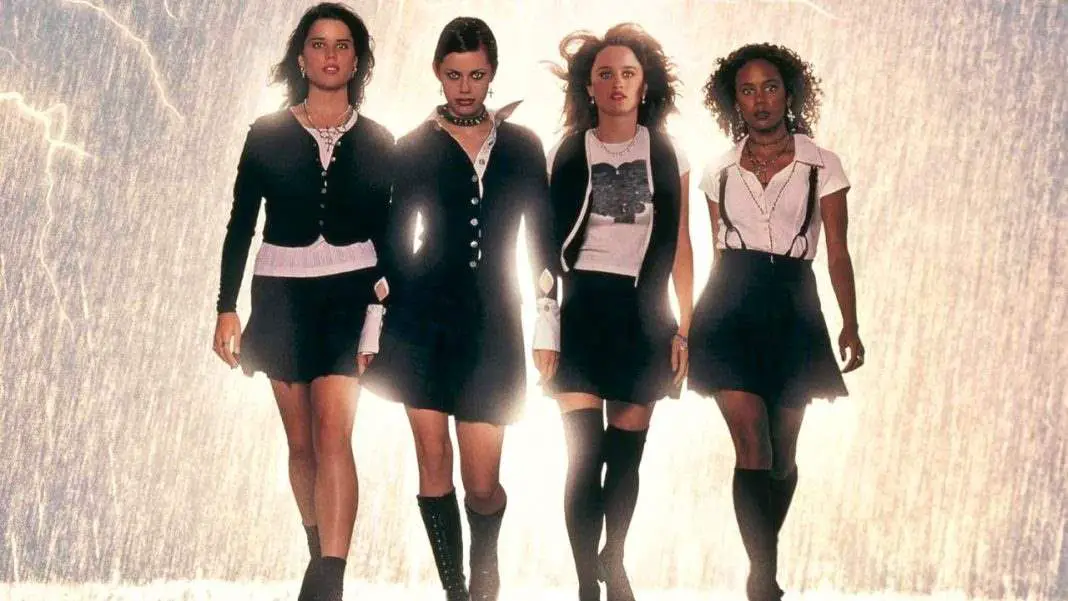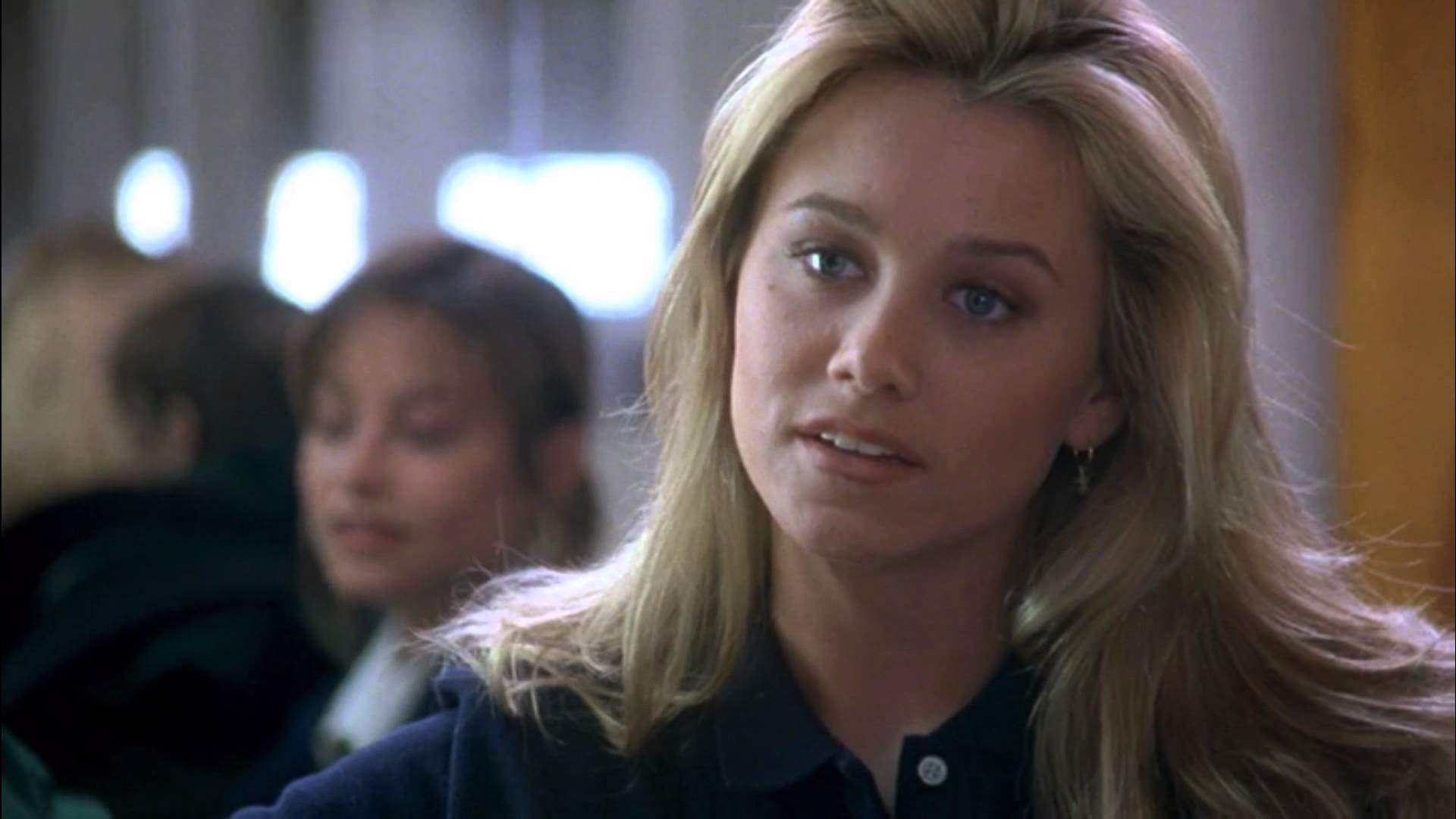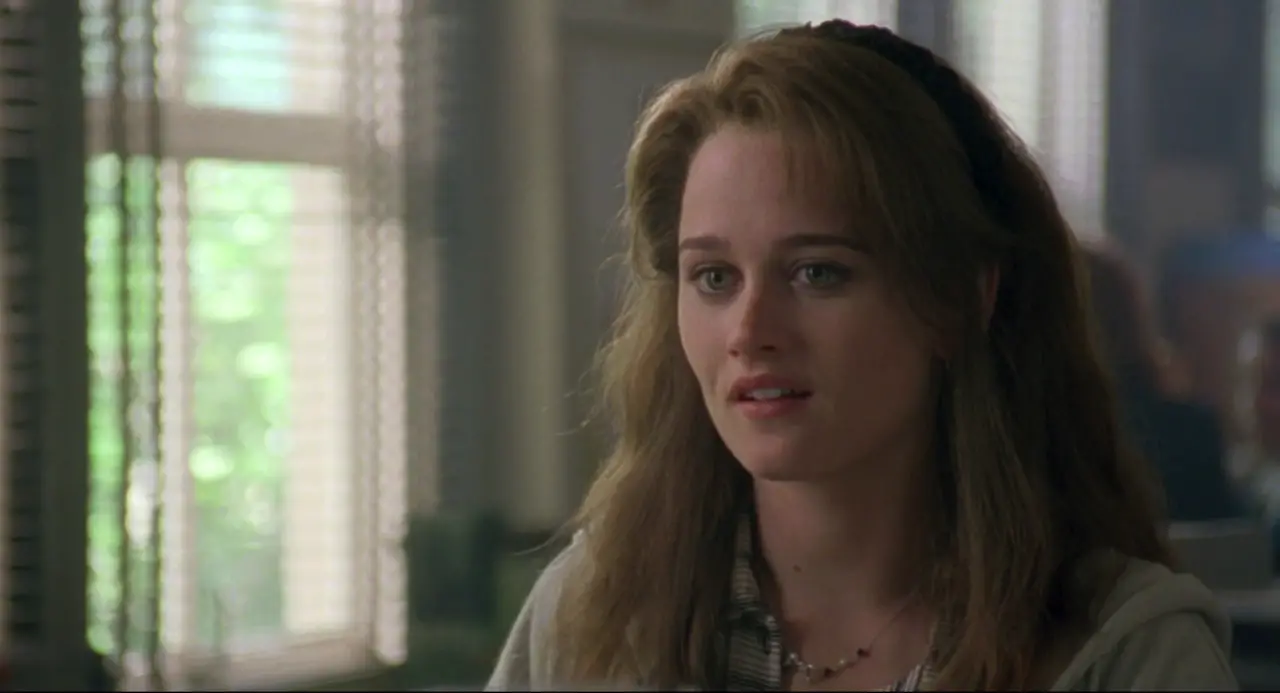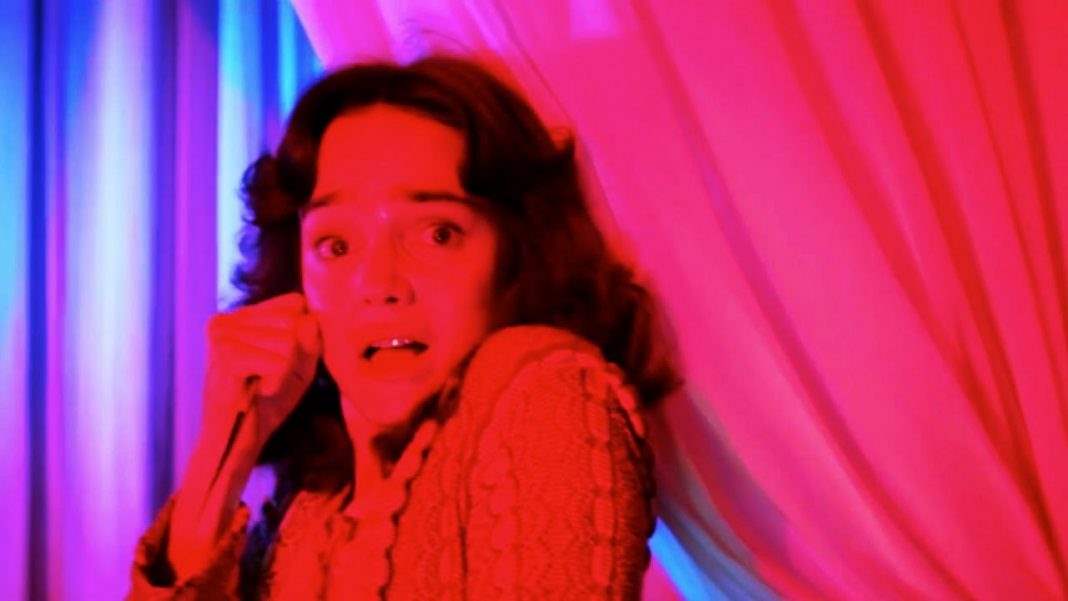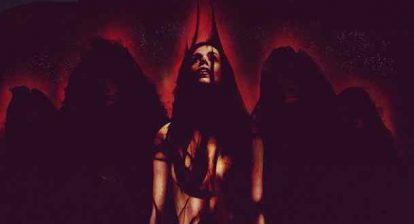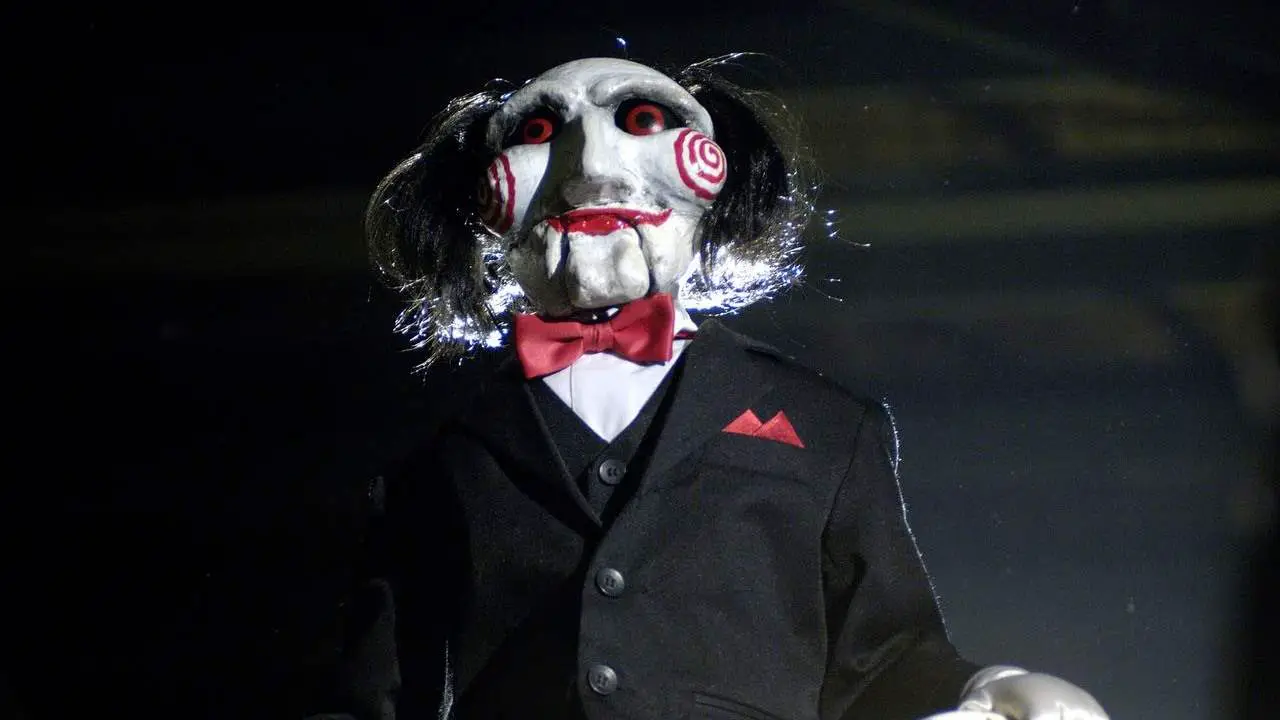Historically, witches have been considered the outcasts of gender normality in society. These are women that seek independence from the stereotypes considered ideal for the female gender. The preconceived notions categorized as ideal for the female gender in society are qualities pertaining to being passive, chaste, pure, or submissive. A witch, however, seeks to obtain power. With power there comes assertiveness, confidence, and a certain control typically reserved for the preconceived notions aligned with stereotypes of the male gender. In The Craft, the audience is able to watch as four young women defy gender stereotypes. Yet, the downfall of two of the women comes when they start to lose their sense of self and try to blend into the social stereotypes of being female. Another downfall comes with one woman being too consumed with power. The successful woman is one who remains true to her sense of self while maintaining compassion for others. Yet, even before these women start to manifest any supernatural powers, they are all joined in their common position in being socially maligned and labeled as witches simply for wanting control over their lives. The Craft examines feminism through it’s revealing of problematic hierarchy, corruption, and the need for balance in order for strong females to succeed.
“We are the Weirdos, Mister”
Their differences in mainstream society, as well as with each other, are what initially bring the four young women in The Craft together. Sarah (Robin Tunney) is the suicidal new girl, Nancy (Fairuza Balk) is from a lower class family, Rochelle (Rachel True) is bullied by her peers for being a racial minority, and Bonnie (Neve Campbell) is covered in burns that keep her from what society would deem as the perfection of the female gender. In order to have a pop culture reference from the same time the film was released, one can argue that they are the anti-Clueless girls. They understand that life is not fair and can be quite dark. If Nancy steps over the line of sexuality, she is immediately labeled as being sexually generous. Ironically, due to Sarah’s rejection of the sexual advances from Chris (Skeet Ulrich) she is also labeled as being sexually generous. The male determines a woman’s place in the hierarchy. As Nancy later points out, Chris is able to be perceived however he wants when really it is he that is promiscuous. However, his promiscuity is accepted in society. These four women reject this idea and it leads to them being labeled as the social outcasts, as well as speculation that they are, indeed, witches.

“Shark!”
In a patriarchal society, those in power tend to maintain control over that power. Due to this example, a cycle occurs in which those that are already dominated seek to oppress others to achieve any sense of power. This is a cycle with no change that really only succeeds in keeping the oppressed right where they are in a hierarchy. This is best represented in the character of Laura (Christine Taylor). She has gone as far as a woman can go in society without being labeled as a problem to her gender; she is of a privileged class, has a boyfriend, and participates in a non-threatening sport such as swimming. Swimming is non-threatening because of her vulnerability wearing a bathing suit and not being aggressively physical in competition. Physical aggression such as a contact sport is what society considers an ideal of the masculine gender. Being a part of the privileged class, she uses her All-American blonde looks to oppress Rochelle. Rochelle is a woman of color and Laura targets this in order to establish her control in the hierarchy of society. Laura also puts down Sarah when the high school community labels her as sexually generous simply because of the label a male gives to her. In order to reinforce a patriarchal society, it is the male gender that is celebrated as overtly sexual, not the feminine. Ultimately, when she begins to lose her looks, Laura also begins to lose her place in the social hierarchy.
The women of The Craft are strongest when they come together to support each other. They accept each other’s differences and reject simply accepting the ways in which the privileged in society try to oppress them. They then seek to right things and obtain a balance where they have as much power as those that seek to keep them oppressed. Nancy is able to rise above her lower class position. Bonnie loses the scars and achieves a high sense of confidence. Rochelle is no longer tormented by Laura. Sarah believes she is finding acceptance in love with Chris. The climactic moment of balance and harmony between the women occurs when they have each achieved what they consider to be success. However, everything becomes problematic because the balance tips and the oppressors are now oppressed. The bond between the women becomes strained in their actions and the way in which they choose to behave with the results of their actions.
Once Rochelle and Bonnie achieve the success they have sought, their downfall occurs when they revert to the personalities they loathed at the beginning of the film. They are no longer the anti-Clueless but are now the embodiment of stereotypical All-American girls. Sarah asks for their opinion at one point and even Nancy proclaims, “They don’t think.” Instead of using their newfound strength to continue a path of success, Rochelle and Bonnie assimilate into passive roles in need of a leader. They no longer break gender norms but instead attempt to embody the passivity idealized for the female gender in a patriarchal society. The two girls stand behind Nancy who has now asserted herself as the aggressive leader with the most power. Sarah tries to reason with Rochelle and Bonnie but because it appears that Nancy has the most power, they stand against Sarah. From what they have learned as oppressed individuals, they know that the one with the most power usually oppresses and that is something they can understand. They assume that Sarah must be weak because she does not represent the oppressive power that is usually the norm in their lives.
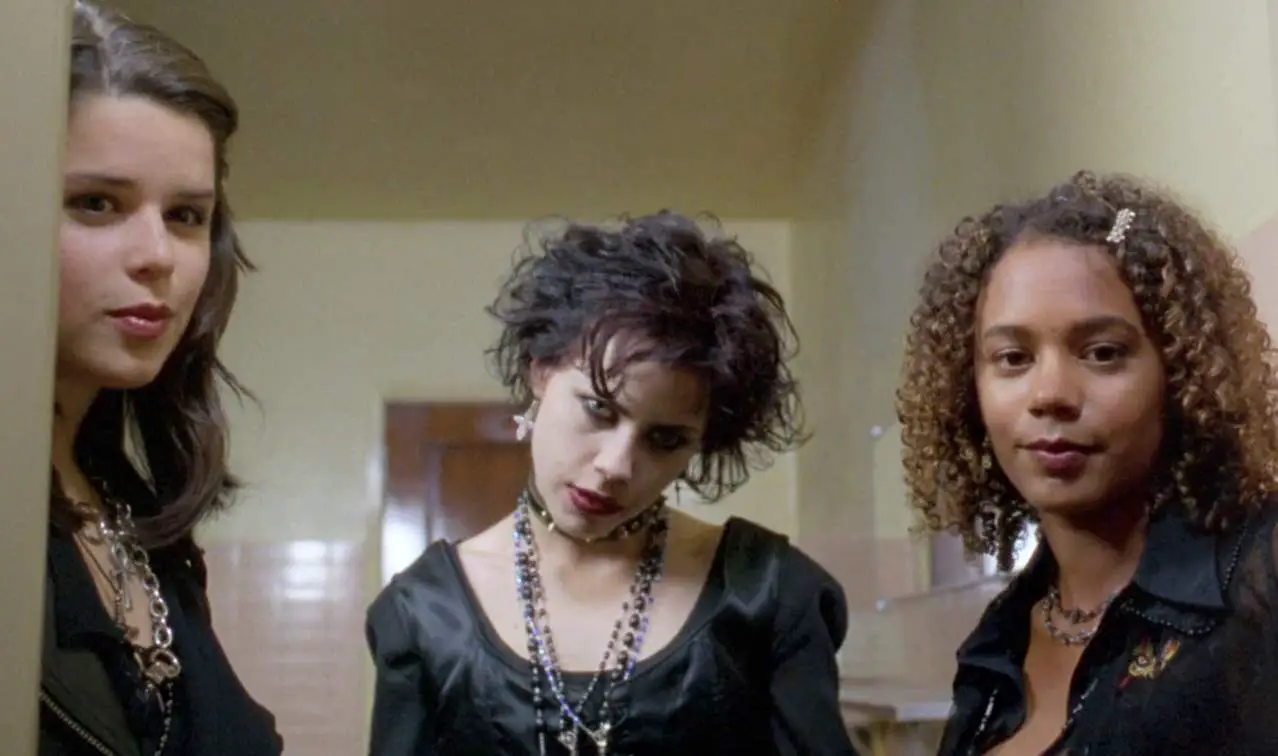 “I bind you, Nancy, from doing harm. Harm against other people and harm against yourself.”
“I bind you, Nancy, from doing harm. Harm against other people and harm against yourself.”
Where the The Craft‘s true strength lies is within Sarah. The audience follows her journey as she goes from someone fragile, delicate, and desperate for social acceptance to one of self reliance. Early on Lirio says to Sarah, “You are not like your friends.” Sarah is nothing like her friends. The whole film is an inner struggle about her finding out that happiness is not going to be found in acceptance from other people. Ultimately, the only person she can rely upon is herself. Sarah had the most power all along. She chose to use her power not to oppress other people but to show compassion, understanding, and support. However, those people she wanted to help chose to use their power to further oppression, so instead Sarah chooses to use her power to restore balance. She does not oppress Nancy, but instead restrains her from causing more harm. Bonnie and Rochelle have proven to use their power for only purposes of vanity and thus, Sarah chooses to no longer share her power with them. Sarah’s journey ultimately leads her to standing up against her friends to becoming a strong individual with a sense of her true self. Also be sure to check out this piece chronicling 10 Life Lessons We Learned from The Craft!
